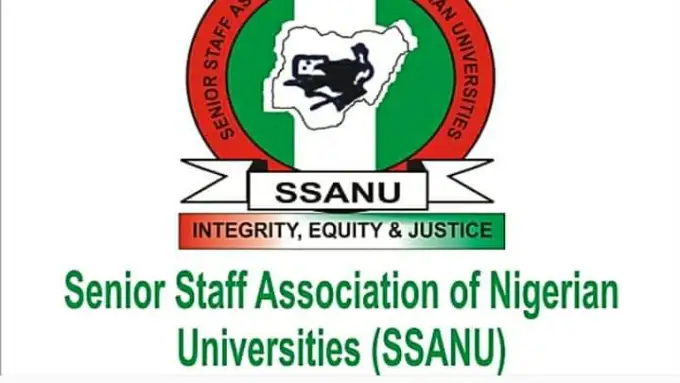The Senior Staff Association of Nigerian Universities (SSANU) has announced that it will begin a strike tomorrow, Thursday, July 4, if the government doesn’t pay its members the four months of owed salaries.

This decision came after SSANU’s 48th Regular National Executive Council (NEC) meeting at the University of Benin, Edo State. The council expressed serious concerns and decisions affecting university staff and the overall Nigerian university system.
One of the main issues discussed was the unpaid salaries. SSANU criticized the Federal Government for failing to meet salary agreements, noting that some unions received payments while others, including SSANU, were left unpaid. Despite earlier promises from government officials and the suspension of a warning strike earlier this year, SSANU members have not received their salaries for four months.
SSANU also addressed the inconsistent payment of the N35,000 wage meant to offset the removal of fuel subsidies. They called for immediate resumption of these payments and urged state governments to fulfill their responsibilities to university staff.
Additionally, SSANU highlighted the urgent need to negotiate and implement a new National Minimum Wage (NMW) due to rising living costs and inflation. They opposed the Southern Governors’ Forum’s suggestion to independently negotiate the minimum wage, insisting that the Federal Government should handle it.
SSANU also demanded a re-negotiation of the 2009 agreement with the Federal Government, stressing the importance of addressing this long-standing issue promptly.
While SSANU welcomed the reconstitution of Governing Councils in federal universities, they criticized the lack of experienced educationists and technocrats in these appointments.
The council expressed serious concern over the increasing insecurity in the country, which affects university staff and administrators, and called for stricter measures to combat criminal activities.
SSANU also criticized the poor condition of Nigerian roads and erratic power supply, which negatively impact economic activities and university operations. They urged the government to prioritize road repairs and find lasting solutions to the energy crisis.
Moreover, SSANU condemned attempts by state governments to impose civil service rules on universities, emphasizing the unique nature of university administration and staff.
In conclusion, SSANU urged prompt action to address these pressing issues to alleviate the suffering of university staff and ensure the smooth operation of Nigeria’s higher education institutions.
A part of the statement read: “NEC in session expresses deep disappointment at the government’s insensitivity and deliberate attempt to cause chaos in the university system by favoring one union over others.”
They reminded that SSANU and other unions were forced to strike in 2022 due to the government’s refusal to honor a collective bargaining agreement. After the strike, an agreement, including a non-victimization clause, was signed, but the government selectively paid withheld salaries. While they didn’t oppose payments to other unions, they expected the same treatment for SSANU and NASU, who legally complied with strike procedures.
Despite promises from the Ministers of Education and Labor, and the House of Representatives, the government has not paid SSANU’s salary arrears. NEC decided to proceed with a comprehensive industrial action after a meeting of the Joint Action Committee of SSANU and NASU, scheduled for Thursday, July 4, 2024, if the arrears are not paid.
In related news, the Academic Staff Union of Universities (ASUU) urged President Bola Tinubu to address the welfare of public university lecturers. Prof. Kingsley Ubaorji, ASUU Chairman at Nnamdi Azikiwe University, highlighted the Federal Government’s failure to honor past agreements, causing economic challenges for lecturers and affecting university education growth. ASUU called for the implementation of several agreements, including the 2009 FGN/ASUU agreement and the Prof. Nimi Briggs’ report on funding and revitalizing public universities.
ASUU also demanded the payment of withheld salaries and Earned Academic Allowances (EAA), the release of unpaid salaries to lecturers on sabbatical and adjunct teachers, and the implementation of the University Transparency Account System (UTAS) instead of IPPIS. They urged the government to act on visitation panel reports and condemned the arbitrary dissolution of governing councils, stressing the importance of proper governance in universities.
ASUU warned of a nationwide strike if the government fails to meet these demands. They highlighted the benefits of their struggles, such as regulated tuition fees and funding for university infrastructure through TETFund and NEEDS Assessment funds. Prof. Dennis Aribodor, ASUU’s South East Zonal coordinator, urged the government to properly fund existing universities rather than establishing new ones.
During their protest, lecturers carried placards with messages like “FG pay us three years arrears,” “Stop suffocating university lecturers,” and “Pay us our worth.”




